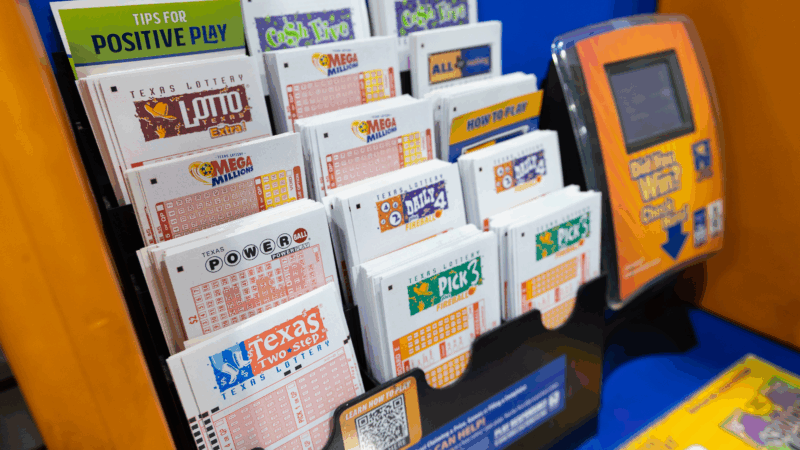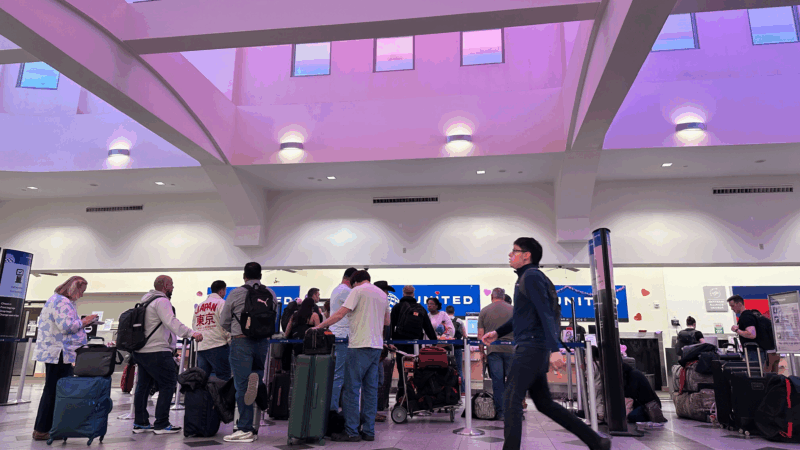Texas Lottery faces scrutiny amid jackpot controversies and leadership shakeup
ROSENBERG, TEXAS – At Lucky Rudy’s, a convenience store outside of Houston, 30-year-old Eli Sierra holds up a fresh scratch-off. Buying lottery and scratch-off tickets has been a simple tradition he shares with his wife — a little spark of excitement, not a serious investment.
“I’ll go buy her some flowers and I’ll buy her lottery tickets,” Sierra said. “I know she loves the rush to be like, ‘Am I gonna win? Am I gonna win? Am I gonna win?'”
Americans spent more than $110 billion trying their luck on the lottery last year, according to the North American Association of State and Provincial Lotteries.
Among the largest systems is the Texas Lottery, which brought in more than $8 billion in 2024 – the fourth highest in sales across the nation. Profits go to fund public education in the state.
But the future of the Texas Lottery looks clouded.
After jackpot controversies, multiple resignations of lottery officials and a ban on online lotto ticket sales, the system is now under investigation by multiple state agencies. The scrutiny has also sparked action at the Texas Capitol, where state lawmakers are pushing new legislation intended to rein in the system.
The role of courier services
At the center of the debate are online courier services, which let users buy official lotto tickets online without stepping into a store. A scanned copy of the ticket is sent to the customer as proof of purchase. Couriers charge a fee for purchasing and managing tickets.
Questions about the legality of such services emerged after two massive jackpot wins in Texas: an $83 million prize claimed in April 2023 through an online courier service and a seperate $95 million payout earlier this year secured by a group that bought nearly all 25.8 million possible number combinations.
The latter was an effort orchestrated by a man from Malta and financed by a London-based betting company, according to the Houston Chronicle and The Wall Street Journal.
“Texans must be able to trust in our state’s lottery system and know that the lottery is conducted with integrity and lawfully,” Texas Gov. Greg Abbott said in February. “Texans deserve a lottery that is fair and transparent for everyone.”
In February, Abbott ordered an investigation into the state’s lottery system; several state agencies followed suit. The Texas Lottery Commission responded by banning couriers from operating within the state.
And last month, the commission’s executive director resigned. Other lottery officials have also stepped down.
“The Lottery Commission has enabled a private-public partnership, led by the state agency, to engage in a criminal conspiracy to defraud Texans,” said state Sen. Bob Hall, who authored a bill being considered during this year’s legislative session that would make online lottery sales a misdemeanor in the state.
The state of Texas didn’t previously regulate couriers. Only three states throughout the U.S. currently regulate them, according to a 2024 report from the Texas House Committee on Licensing and Administrative Procedures.
Hall says this lack of oversight has tarnished the integrity of the system, “creating a criminal organization actually operating within our state government.”
In a statement to NPR, the commission said its top priority was “ensuring the integrity, security, honesty and fairness” of the Texas Lottery. The agency announced its own investigations into couriers in February.
But the couriers themselves say they’ve been legally operating for years and that they want to be regulated. One of these companies is Lotto.com, which sued the state’s lottery commission over the ban on couriers in late April.
“Regulated lottery couriers support integrity and support the operations and continued growth of the Texas Lottery,” said Rob Porter, chief legal officer for the company.
Some lawmakers have proposed bills to regulate courier services, while others have even suggested abolishing the state lottery completely.
Texas Lt. Gov. Dan Patrick says whatever happens, public trust must come first.
“Those who play the lottery must be assured that every game is honest and you have a fair chance to win. If we cannot guarantee that, then the lottery should not continue,” Patrick said.
As for Eli Sierra, he says he’ll keep buying tickets for his wife – controversies or not.
“It’s just something that makes her happy,” he said.
After we spoke, Sierra scratched off his ticket – and walked away $10 richer.
The airspace around El Paso is open again. Why it closed is in dispute
The Federal Aviation Administration abruptly closed the airspace around El Paso, only to reopen it hours later. The bizarre episode pointed to a lack of coordination between the FAA and the Pentagon.
‘Dawson’s Creek’ star James Van Der Beek has died at 48
Van Der Beek played Dawson Leery on the hit show Dawson's Creek. He announced his colon cancer diagnosis in 2024.
A Jan. 6 rioter pardoned by Trump was convicted of sexually abusing children
A handyman from Florida who received a pardon from President Trump for storming the U.S. Capitol on Jan. 6, 2021, was convicted on state charges of child sex abuse and exposing himself to a child.
A country-pop newcomer’s debut is your reinvention album of 2026
August Ponthier's Everywhere Isn't Texas is as much a fully realized introduction as a complete revival. Its an existential debut that asks: How, exactly, does the artist fit in here?
U.S. unexpectedly adds 130,000 jobs in January after a weak 2025
U.S. employers added 130,000 jobs in January as the unemployment rate dipped to 4.3% from 4.4% in December. Annual revisions show that job growth last year was far weaker than initially reported.
Greetings from Mexico City’s iconic boulevard, where a dog on a bike steals the show
Every week, more than 100,000 people ride bikes, skates and rollerblades past some of the best-known parts of Mexico's capital. And sometimes their dogs join them too.







